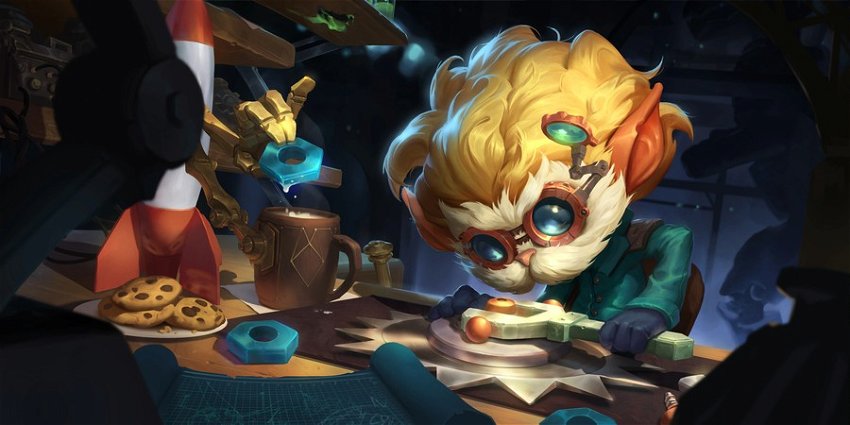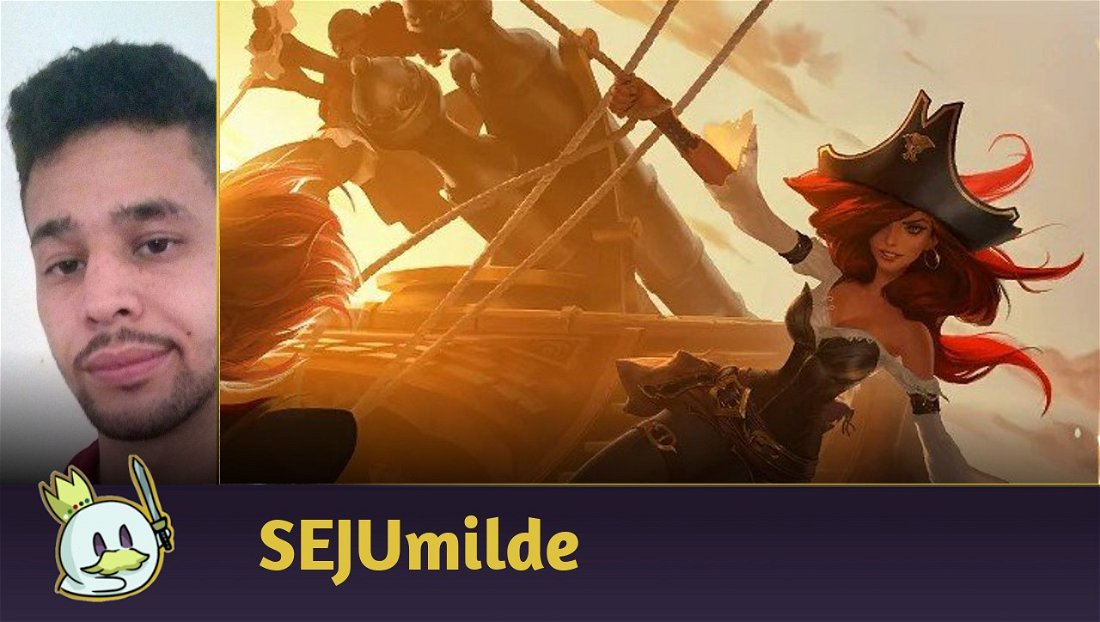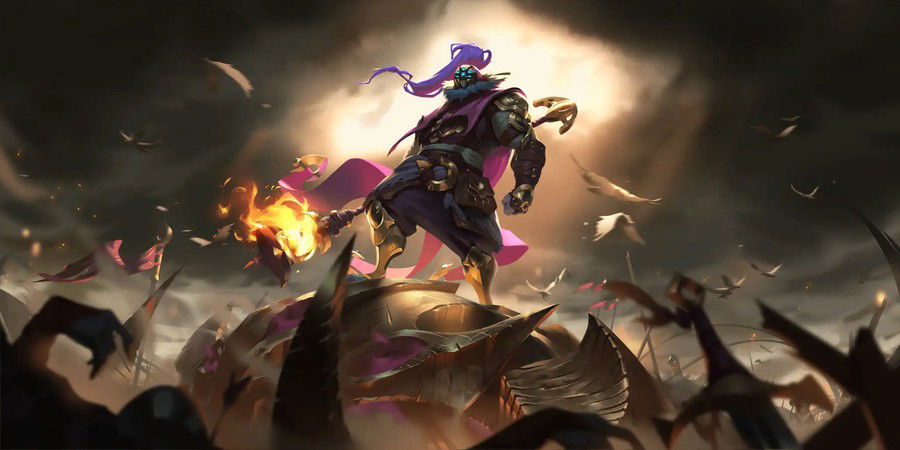Introduction
Legends of Runeterra is one of these games in which the difference between victory and defeat might be in the smallest details, and, due to a big card pool (more than 2000) in the game, it is not rare to face situations that are at the very least unusual in our matches.
These are situations in which one game rule seems as if it was broken, or cases in which certain interactions between game mechanics leave players scratching their heads, eventually making them unable to predict the result of an action, or, by using the eye, they can't comprehend the result predicted.
To avoid situations in which more players are caught by surprise in their matches when these confusing moments arise, we've collected some rules, mechanics and specific interactions that are subject to most questions from players.
Here, we'll explain in detail how the game interprets certain situations, so that more players can get used to how these situations actually work, considering their mechanics and interactions, so they can be better equipped to deal with them.
Special Terms and Card Text
Keywords: Workings and Interactions
Keywords are terms present in the game's card text. Each keyword has an activation requirement and an effect. By hovering the mouse on top of a keyword, a small text describes its basic workings.
However, there are situations that arise throughout the matches that create questions that can't be cleared up through the keyword's tooltip alone.
Overwhelm
The overwhelm keyword is activated during the attack against an enemy blocker in case the ally's power stat with overwhelm exceeds the blocker's health stat. Its effect causes the extra damage to go directly to the enemy Nexus.

Overwhelm's special rule: when a unit that is blocking an attack is removed from the board before the attack goes through (by being recalled, for instance), the attacker which this unit blocked doesn't strike in this combat. However, if the attacker has overwhelm, it will still attack the enemy Nexus in case its blocker is removed from the board.
Strike and Nexus Strike
Strike is activated when a unit with power above 0 tries to deal damage to something using its power. Its effect is described in the card's text. Observe that the allied strike effect is activated before an enemy unit in combat has the chance to strike.
Nexus Strike is activated when a unit strikes (follows the same rule as the keyword strike) the enemy Nexus. Its effect is described in the card's text.

Question: If my unit with Nexus Strike deals damage to the enemy Nexus through overwhelm, does the overwhelm activate Nexus Strike?
Answer: Yes, because the damage caused by overwhelm is dealt to the Nexus based on the unit's power, and, therefore, counts as a strike.
Barrier
Barrier is activated only on the first time the unit would take damage after receiving the barrier, its effect states it negates all the damage its owner would receive.

Question: what is the interaction between barrier and overwhelm?
Answer: When an ally with overwhelm attacks an enemy with barrier, what happens is that the barrier only negates the damage dealt to its owner, and doesn't interfere with the overwhelm damage, which remains equivalent to the ally's power stat minus the enemy's health stat.
Question: if my ally with lifesteal attacks an enemy with barrier, will it heal my Nexus?
Answer: No, because lifesteal heals your Nexus equivalent to the damage dealt, as barrier negates all the damage received, no damage is dealt.
Tough
A unit or a Nexus with the keyword tough reduces by 1 the damage taken by each instance/event of damage. It is particularly effective against opponents which use lots of 1 damage sources, in contrast with fewer sources that deal a lot of damage at once.

Question: if my unit has barrier and tough, which of the two effects activate first when taking damage?
Answer: In this case, the barrier will activate first, which means if your tough unit is attacked with 1 damage, the barrier will be dispelled first.Scout
Scout is activated the first time only units with scout attack each round, and has as effect creating a new attack token for the player, allowing them to attack again.

Question: If my Jarvan IV is summoned from my hand automatically, will I lose the scout effect?
Answer: No, because the game only checks if units with Scout are attacking at the moment the attack is declared, and considering Jarvan IV comes into the attack after you've already declared the attack, you'll still have the extra attack token.
Capture
Capture is a keyword with two activated cases of different effects.

The first activation happens as soon as the capture unit comes into play (respecting the time for the card to activate), and has its effect to make a unit on board capture another unit (it activates target effects related to both the targeted units, be them allies or enemies), removing the one that was captured and adding a special text to the card which captured it.
The second activation happens as soon as the card that has the additional text created by the first activation is removed from the board, resulting in a new copy of the captured card being summoned on its original board, be them ally or enemy.
Question: what happens to a captured unit when it's freed?
Answer: Due to the imprecise descriptive text available in game, players often confuse themselves with this keyword, because they understand the unit with capture, intuitively, only "imprisons" the capture unit in an invisible place and afterward it "releases" the same unit that was captured, which doesn't happen.Instead, the unit captured is effectively removed from the game, and the "released" unit is, essentially, a new copy of the card that was captured, but, it isn't an identical copy.
As it is a new copy, the unit summoned when the unit which captured it is removed from the board is summoned with full health, regardless of how many health points it had when it was captured.
Question: in case one of my units with a keyword is captured, when it is released, will it come back with the same keywords it had?
Answer: As it isn't an identical copy, the summoned copy doesn't have any of the modifiers, negative or positive, which the captured unit had (including keywords added to the unit), and it will only have the modifiers that are already originally from the card, that is, the ones that already come with the card when it is summoned from hand (in case no modifiers were added to the card during the game).Question: In case I enhance all my units globally while my unit is captured, when it is free, will it have the enhancement?
Answer: No, because another consequence of the fact that captured units no longer exist, is that they are not affected by globally applied effects, and as the summoned card "freed" is only a new copy that is created at the moment whichever card captured it is removed from the board, it will also not be affected by previous global effects.Question: if my unit which has an activated ability when summoned is captured, when it is freed, will it activate its summoning effects again?
Answer: Yes! When a unit with an activated summon effect is captured by another unit and the other unit is removed from the board, the new copy of the captured unit is summoned again and activates summoning effects.Question: what happens if I silence an enemy that captured my ally?
Answer: when a unit captures another, the captured unit ceases to exist, and from then on, it only exists a reference to it in the form of the text added to the unit which captured it.The return of the unit captured to the board is an effect activated by the text added to the unit that captured it, in the event it is removed from the board.
In case the unit which captured it is silenced, the text that made reference to the captured unit is erased, and, therefore, the captured unit is lost forever, as nothing in game will exist to summon it back again.
Equipment and Auto-equip
Equipments are cards that can be attached to units, granting the equipped unit its stats (adding to the card's original stats) and modifiers (including keywords). Each equipment can only be used once a turn. When an equipped unit is removed from the board, its equipment returns to the player's hand. Equipment can have their cost paid by spell mana as well.
Auto-equip activates when the unit is summoned. When activated, it makes the unit immediately equip the equipment specified in the text.
In case the equipment doesn't exist in the player's hand nor on board, it is created first, in case it already exists, it is automatically equipped, and in case it is being used by another unit, the unit which is already using the equipment unequips it first.

As a result, summoning an ephemeral copy of an auto-equip unit might come at a high price, as the ephemeral copy will "steal" the equipment from the original unit and, after the ephemeral copy dies, you will have to pay the equipment cost again if you want to equip it in the original unit.
Question: what happens if my equipped unit is silenced?
Answer: The unit will be silenced normally, but the benefits from its equipment will not be destroyed until the equipment itself is destroyed or unequipped from it.Question: what happens if my equipped unit is obliterated?
Answer: Unlike the case when a unit with equipment is killed, when it is obliterated the equipment attached to it is also obliterated.Improvise
Improvise is a keyword that allows you access to an array of 8 weapons total.
When a unit improvises, it equips one of the 8 weapons, lowering the number of weapons in the pool, which is limited. When the 8 weapons are improvised, the pool is refilled with the same 8 weapons again.

It is activated when the unit is summoned, and by being activated it offers the choice of 2 random weapons among the weapons left in the current pool. By choosing equipment, it is auto-equipped.
Stun
Tip: stunned units can still be put into an attack or a block due to some cards and effects, such as the card Stand United, which switches the position of allies, even when they're stunned, and can be used on a stunned ally so that it switches position with an ally in combat.

Units with challenger can still call into combat stunned units, forcing them to defend.
Spellshield
Spellshield prevents the next enemy spell from affecting the unit it would.

Question: what will happen if I play a spell that creates another spell after it resolves targeting a unit with spellshield?
Answer: in this case, as the creation of another spell is linked to the resolving of the first spell, it won't be created, because Spellshield will effectively negate the spell that is targeting the protected unit.Question: what will happen if I play a spell that targets more than one target, one of them being a spellshield unit?
Answer: The spell will have its regular effect on the other targets, consuming the spellshield of the targets that have this keyword. The same goes for spells that target the whole board.Question: if I have a unit with spellshield and I play a spell targeting the whole board, will it be protected from it?
Answer: This is one of the most common mistakes related to this keyword. Spellshield only activates against spells played by your opponent and, therefore, doesn't protect your units from spells you played yourself.Attach
The keyword Attach activates when the unit is played. By being activated, it offers two options for the player.
In the first option, the unit being played will attach to another unit in play, and in the second option it will be played as a regular unit.

While a unit is attached to another unit, it offers the unit on board health and power equivalent to their own and also shares with the unit on board its keywords (observe that it isn't a Transference of keywords, as we'll later see).
In case the unit on board is killed, the unit attached to it will return to the player's hand.
Question: what will happen if I silence a unit with another attached to it?
Answer: the unit is silenced as usual, but the attached unit isn't silenced and keeps providing its enhancement to the silenced unit, returning to the hand in case it is killed.Question: what will happen if, instead of killing, I obliterate a unit with another attached to it?
Answer: both units (on board and attached) are obliterated, this way, the attached unit won't return to the hand.Keywords that can be randomly generated
There are some cards and effects in the game which can grant units random keywords, such as the card [x] and the power [y] in the mode Path of Champions.
However, only a limited list of keywords can be generated and they are:
- Augment
- Challenger
- Elusive
- Fated
- Fearsome
- Fury
- Impact
- Lifesteal
- Overwhelm
- Quick Attack
- Regeneration
- Spellshield
- Tough
Note: The keywords in this list may vary according to the current version of the game.Keywords which are non-transferable
Some cards and effects in the game allow you to transfer keywords from one card to the next, for instance, the unit Horazi:

However, some keywords obey specific rules to be transferred, and some can't be transferred.
Keywords with specific rules to be transferred: The keyword barrier is only transferred in case it is active in the original card, whereas the keyword impact is only transferred one at a time (regardless of how many impacts the original unit has).
Keywords that can't be transferred:
- Attach
- Attune
- Can't Block
- Ephemeral
- Immobile
- Last Breath
- Manifest
- Vulnerable
- Barrier (only when the barrier is no longer active in the target unit)
Note: The keywords in this list may vary according to the current version of the game.All other keywords are transferable.
Other Special Texts
Cards with cost equal or higher than X
The check for this requirement is done based on the current cost of the card, and not its original cost, which means a card that before fulfilled this requirement cannot fulfill it anymore if its cost is reduced enough.
For each different subtype you summoned
For this requirement, only the subtypes of the unit itself are accounted for, and, therefore, in case a unit without a subtype has an attached unit which has that subtype, or equipment which has a subtype, none of the subtypes in these attachments will be counted.
Order of activation
Spell Stack and Skills
In case of fast and slow spells and skills, the order of activation always goes from the left to the right, that is, the last to be played is activated first!
Final Words
What did you think of these tips and explanations? Was it possible to understand them a bit better or are they even more confusing?
I confess I had to study a bit, and test a few interactions, to write the part about the capture keyword.
What about you, which of these tips and explanations were unknown to you? Were any of your questions answered? Don't forget to comment so that we know it as well! See you next time!












— Comments 0
, Reactions 1
Be the first to comment